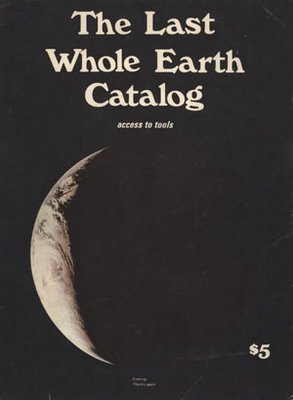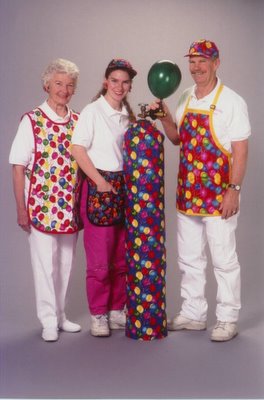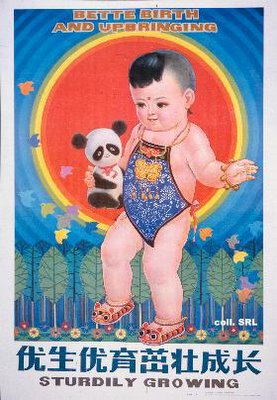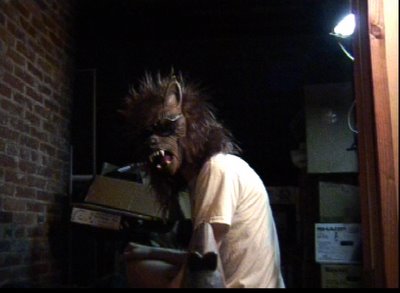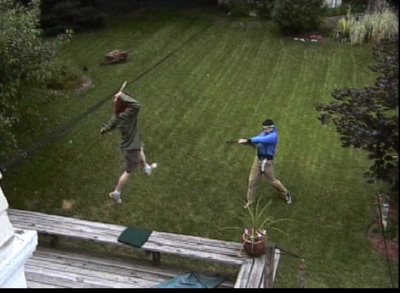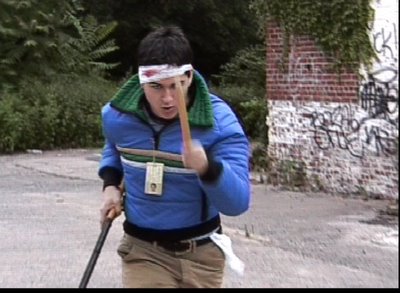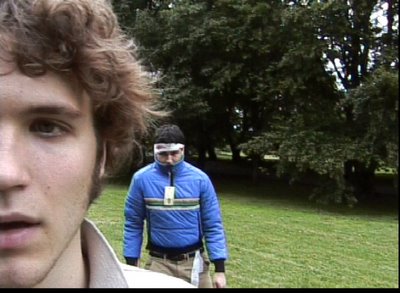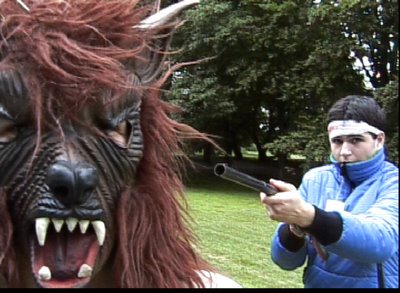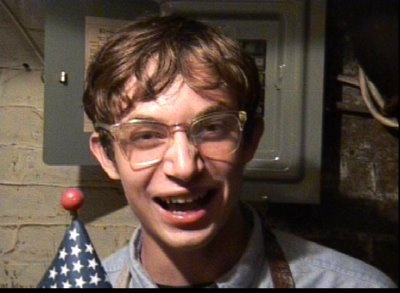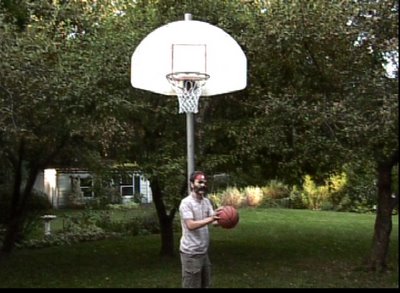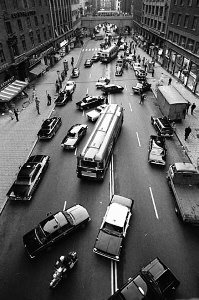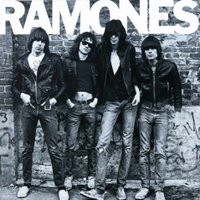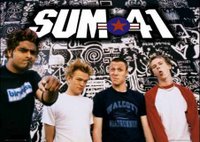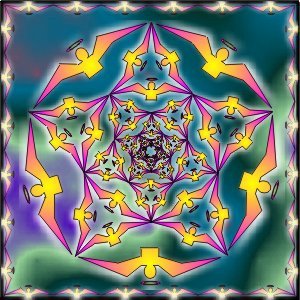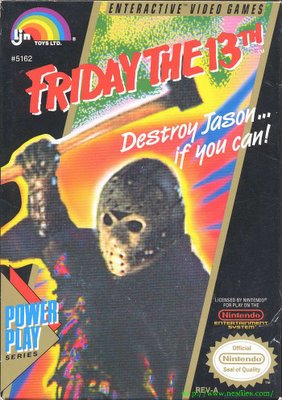NOTE: I started working on this post last week. It almost turned into a novel, so I had to reel it in a little...
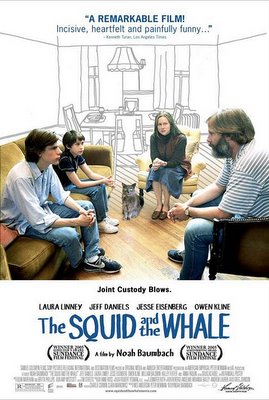
Have you seen The Squid and the Whale, Noah Baumbach's semi-autographical film about his parents' divorce? I saw it last weekend at the Lincoln Center Plaza Theater at 62nd and Broadway. There were lots of old Jewish ladies sitting behind me. We could easily vibe-out on the Upper West Side old Jewish ladies but the movie is more about the generation after them: our parents!
This vibe is not explicitly Jewish, so when I say "our" I really mean "our" - assuming your parents grew up in America and didn't have crewcuts and go to Pro-War rallies in 1968. However, the vibe is tinged with Judaism in my vibe-consciousness because it has been framed by, duh!, my Jewish parents and some of their Jewish friends. If we want to take it beyond that we'll have to start bringing in that jerk David Brooks:
(From his recent
review of "The Chosen" in the NYTimes Book Review)
A few years ago, I wrote a book about the rise of a new educated class, the people with 60's values and 90's money who go to Starbucks, shop at Whole Foods and drive Volvos. A woman came up to me after one of my book talks and said, "You realize what you're talking about is the Jews taking over America."
Let's save that can of worms for another day...
So, the Squid and the Whale takes place in Park Slope, 1986. Jeff Daniels and Laura Linney play the parents. Noah Baumbach's real parents are Village Voice film critic Georgia Brown and Brooklyn College MFA Professor and author Jonathan Baumbach. Blah, blah, blah - go see the movie for more on plot; we're here to know and understand the vibes.
Before I even saw the film, I could sense certain vibes. Take a look at Jeff Daniels:
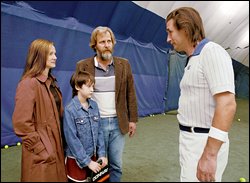
He's got a great look in the movie. Very reminiscent of the dad from "Family Ties".

Know what I mean? Bearded, eighties, semi-crunchy - what should this vibe be called? For now I think the umbrella term for the vibe I'm searching out should be called "post-hippie domesticity".
It's easy to imagine a chronology in which each and every hippie sold out and turned into a yuppie in the 80's (or earlier). Hippie Johnny got a job with "the man", had kids and was eating Haagen-Dasz for breakfast by 1985, right?
Well wait a damn second! Michael J. Fox (as Alex P. Keaton) was the "yuppie" of the Family Ties family. Mom and Dad were post-hippie domestics! Alex's Reaganomics-yuppie-Gordon Gekko vibe was constantly at odds with his laidback parents. This is not to say that they were still hippies. On the contrary, they ran a successful and happy household. They weren't hitting the bong or dumpster-diving to feed their children but they weren't managing hedge funds or lusting after Japanese stereo systems either.

DAD = OPEN COLLAR, MICHAEL J. FOX = TIE
Sometimes this group gets lost in the shuffle. Maybe they all eventually succumbed to yuppie-values. Can you think of a living specimen in your own life?
I think I can, but it's hard to be sure. Having met lots of middle-aged people in my day, I think I can safely make a distinction between the different kinds of households - therapists, academics, people with media-related jobs tend to have earthier households whereas bankers and lawyers tend to have more glistening formica in the kitchen. Is this fair to say? After all, they're all sipping on soy milk from Whole Foods...
Hmmmm, maybe the post-hippie domesticity vibe is more pervasive than I first thought. Have you ever met a total middle-aged hippie? Still driving the VW bus, still wearing tie-dye, probably doesn't have any kids, never got a "real" job. Try to imagine one...
Now imagine the most tight-ass, corporate dad you've ever met. He wouldn't even wear sandals on the weekends. He's kind of racist. He listens to CD 101.9 and may not know who Jerry Garcia is.
OK, now imagine the adult/parent in between these two extremes: it's most of them!
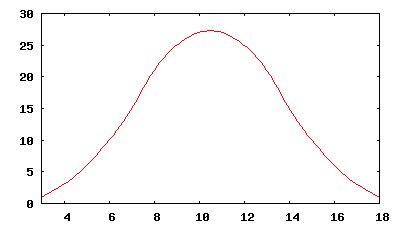
VIBE PATROL:
All that Carnaby Street/Swinging 60's/If yer going ta San Francsico stuff is very youth-oriented. Live in the now! Do drugs! Free love! All of these values are at odds with the traditional notion of a family...
Does the cultural shift from wild and crazy hippie to post-hippie domestic parallel the musical shift from late 60's psych rock to the singer-songwriter movment?
Well, it would take a lot of time to sufficiently look into that. However, I can say that a lot of my post-hippie domestic musical touchstones involve singer-songwriters:
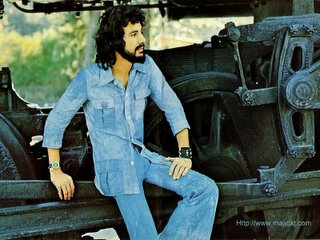
-Cat Stevens - He's always singing about children and stuff. This song has always been special to me. Mostly because Cat Stevens drops some seriously twisted grammar in the chorus:
"Give me all the love you've got...to me."
I've tried to put myself in Cat's shoes and imagine what he was thinking when he wrote that line. I guess the "to me" at the end is for emphasis, but c'mon! It does not work! Whatever, this is still a goddamn gem of a song! All about the pleasures of post-hippie domesticity - washing dogs, shifting logs, etc.
Cat Stevens - C'mon Baby (Shift that Log)
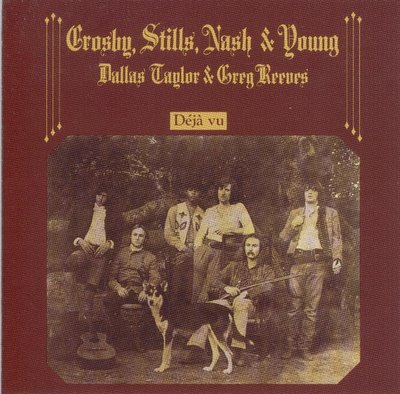
NOTE THE DOG!
- The mother of all post-hippie domesticity songs is "Our House" by Crosby, Stills, Nash and Young. This probably should have been the theme song for "Family Ties". This song immediately conjures images of a crunchy, earthy, deep brown wooden dining table kind of family.
I remember two summers ago I was subletting a Columbia professor's apartment with some buddies. For some reason, I was jonesin' really badly to hear "Our House". I was bumming because the internet wasn't working but then I went over to his relatively small record collection and found Deja Vu. Everyone that age has this album!
Crosby, Stills, Nash and Young - Our House
Can you imagine a hit song about the pleasures of home life today???
OTHER VIBE ELEMENTS:
-70's Cookbooks
I'm not sure if my parents ever used any recipes from these, but the aesthetics of their 70's cookbooks really left an imprint on my mind.
The Vegetarian Epicure Book Two by Anna Thomas emanates some seriously post-hippie domestic vibrations; from the colors to the fonts.
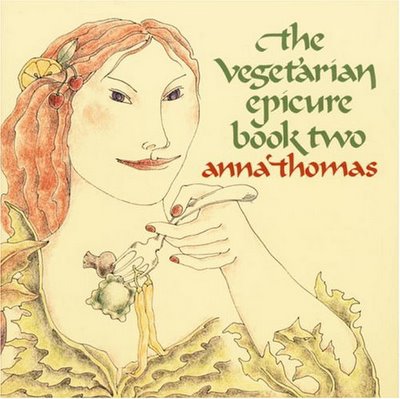
The Moosewood Cookbook also has that earthy yet clean vibe.
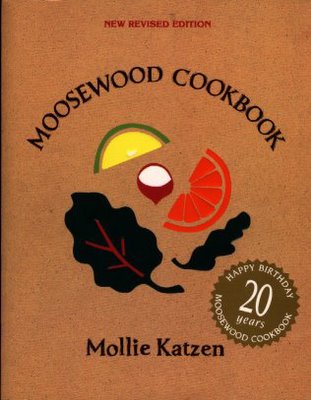
- We could probably also throw "This Old House" into the mix; sensitive craftsmen working hard for the sake of domestic life.
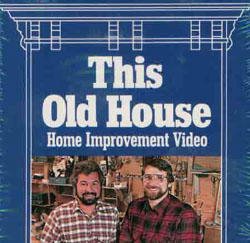
Conclusionz:
As I said before, it would take a novel to fully explore this vibe. Let me know if you can think of other vibe elements from your own life or from the collective consciousness of AMERICA.
-The parents in "the Squid and the Whale" represent the post-hippie domestic vibe gone wrong! They are selfish and bitter. However, they retain enough of the vibe to raise some smart, sensitive kids.
- In a recent issue of Vice Magazine,
they interview Michael Gross aka THE DAD FROM FAMILY TIES. In the interview they call his character from the show a "boomer pussy".
Later in the issue, the "Vice Staff" writes:
Everything about this generation comes back to what Paul Begalacalled “the most self-centered, self-seeking, self-interested, self-absorbed, self-indulgent, self-aggrandizing generation in American history.” They are the "Me Generation”... What a load of horse-shit! Sensitive, intellectual parents (aka post-hippie domestics) like the Keatons are not self-obsessed. The children of such parents who, in an effort to rebel against the positivity they grew up with, turn into rampant haterz are the "ME GENERATION".
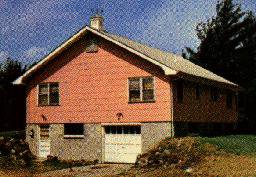
FINAL THOUGHT:
Can post-hippie domesticity make a come back? I'm a little too young to have any married-with-kidz peers, but I can imagine some play-your-love-songs-all-night-long households springing up in the next 10 or so years.
Here's some hope from the
NYTIMES:
Dr. Pennebaker, the University of Texas psychologist, has shown from an analysis of writing samples from 3,000 people taken at various ages that even the number of positive words people use rises significantly over time. The rate at which people refer to themselves, a measure of rumination or self-absorption, falls off dramatically.
People become more positive and less all-about-me as they grow older!
